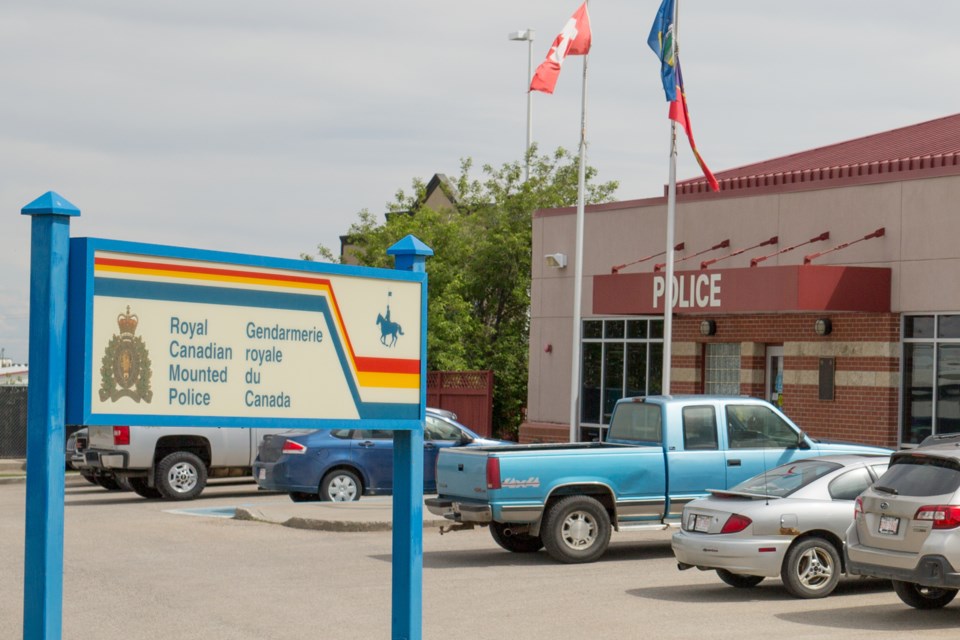DIDSBURY - Alberta municipalities, including in this district, are very concerned that they may on the hook for millions of dollars in retroactive RCMP pay outlined in a new federal police agreement, say officials.
Under the new Government of Canada-National Police Federation collective agreement, more than 19,000 regular RCMP service members will be receiving pay increases retroactive to 2017.
The agreement sets out the cost of policing to municipalities covered by the provincial police service agreement (PPSA) and the municipal police servicing agreement (MPSA). The exact amount of retroactive pay that municipalities may be asked to cover has not been released.
Town of Didsbury Mayor Rhonda Hunter says the fact municipalities were not involved in the negotiations of the new contract means they shouldn’t be on the hook for the retroactive payments.
“When these negotiations take place and there’s no municipal presence at the table, that’s an obvious exclusion from what should have been a presence,” said Hunter. “So the federal government stepping up and paying for this is the right thing to do.
“When there are negotiations that go on that you’re not part of them and then you’re handed the bill at the end of the day we definitely have definite opposition to that.”
Jason Nixon, Sundre-area UPC MLA and minister of Environment, says the provincial government is looking at the issue and consulting with stakeholders.
“The justice minister is looking at this issue and has been in touch with AUMA (Alberta Urban Municipalities Association) and RMA (Rural Municipalities of Alberta) to figure out the best way to advocate for that,” Nixon told The Albertan.
“We will continue to strongly encourage -- not just on the RCMP issue and law enforcement -- the federal government to send appropriate money back to this province, which pays a disproportionate amount into confederation, to make sure that we can help with services here.”
Asked if the provincial government would be prepared to cover retroactive RCMP pay increase costs sent to municipalities, he said, “I can’t speak to that. I’d have to refer you to the justice minister. I haven’t seen any details on that.”
The AUMA and the RMA represent towns and counties in the province. Both associations are calling on the federal government to cover the cost of the retroactive pay.
Okotoks mayor Tanya Thorn is an AUMA board member and the association’s principal spokesperson on the issue.
Across the province, the total impact of the retroactive pay increase is estimated to be about $150 million, she said.
Asked if Alberta municipalities are in a position to cover that cost, she told The Albertan that would be “extremely difficult” to manage.
“Municipal budgets have been consistently hammered over the last three or four years, so the fiscal capacity, particularly to cover the retroactive, is at an all time low quite frankly,” said Thorn.
“As a municipality we have, by legislation, to balance our budgets so we don’t get the luxury like the province and the feds to run a deficit. For a municipality like mine (Okotoks) I have a bill of about $1.2 million coming to me for the retroactive piece, which is about a 4.5 per cent tax increase for my community to cover that cost.”
The federal government, not municipalities, should cover the retroactive pay costs, she said.
“We absolutely respect the RCMP members’ right to collective bargain and will acknowledge that there was a pay disparity across the county,” she said. “At the AUMA we are advocating to the feds, to the minister of Public Safety and Emergency Preparedness, that they should be picking up that retroactive bill. They should be covering those costs.
“The RCMP has been without a contract really since 2016 so the feds have dragged this out for a very long time and it’s them that are responsibility for the negotiations.”
Wyatt Skovron, RMA manager of policy and advocacy said: “RMA is advocating to both the provincial and federal government that responsibility must not be passed on to municipalities in the form of increased municipal costs or reduced service levels, especially since municipalities did not have a seat at the negotiating table.
“RMA has taken a position that because the federal government negotiated and signed the agreement, it should be their responsibility to handle the cost associated with retroactive pay.”
Curtis Zablocki, deputy commissioner and commanding officer of Alberta RCMP said follow-up details on the new agreement will soon be provided to municipalities.
“We are mindful that policing represents a significant cost for our municipal partners and that you are currently in the midst of planning budgets for next year,” Zablocki said in a letter to the Town of Didsbury.
“We appreciate your need for further details and we are currently working towards calculating the financial impact to your policing budget. We will share this information with you as soon as it’s available.”
Increasing Alberta RCMP officer pay is needed to bring them into line with other police in Canada, said Didsbury's mayor.
“We all hold our RCMP in high esteem and we support the RCMP,” said Hunter. “No one begrudges them being paid what they are due.”
Under the new federal agreement first class RCMP constable’s salary will increase from $86,110 to $106,576.


